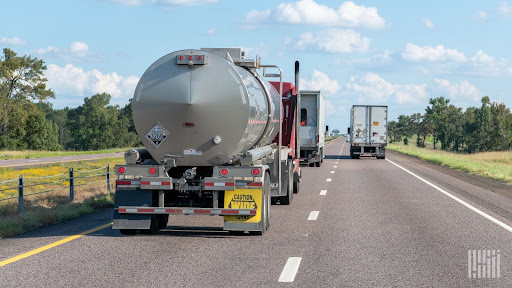Many carriers skim through setup packets just to get the load—especially when they’re scrambling to fill backhaul miles or respond to a hot reload alert on a load board. That urgency makes it easy to treat all brokers like they’re the same, assuming the terms must be standard. But buried in that rush is where the danger lives. Because what looks like boilerplate language can actually wreck your cash flow, tie your hands for months, or leave you stuck paying for someone else’s mistake.
We’ve seen it too many times: a carrier signs a setup packet in five minutes just to get moving, not realizing they agreed to unlimited liability, 90-day payment terms, or a non-compete clause that locks them out of working with a customer for two years. The difference between a clean agreement and a bad one isn’t always obvious at first glance—but it shows up when a load gets damaged, payment doesn’t come on time, or a broker deducts thousands from your settlement with no warning. This article is here to slow you down—not in your hustle, but in your process. Because the fine print isn’t just paperwork. It’s protection—or exposure. And if you’re serious about building a business that lasts, you’ve got to learn how to read every carrier packet like your business depends on it—because it does.
Red Flag 1 – You’re Responsible for Everything, No Matter What
One of the most common lines you’ll see in these contracts is a wide-reaching indemnification clause that puts the entire burden on you.
“Carrier shall defend, indemnify, and hold harmless the Broker and its customers from any and all claims, losses, damages, or liabilities.”
Why it matters: Even if the issue wasn’t your fault, you’re now liable for claims, legal fees, and financial losses. This kind of language offers zero protection for the carrier.
What to look for instead: Mutually agreed indemnification that limits your responsibility to your actual actions—not someone else’s mistakes or vague allegations. For example, if it was act of nature or shipper error, you should not be liable for damages.
You’ll often find a clause that says:
“Carrier shall not re-broker, subcontract, or assign any shipment without prior written consent. If violated, Broker has no obligation to pay.”
Why it matters: If you run a leased-on driver or owner operator, that might technically qualify as rebrokering under this language—and they can use it as a reason not to pay you.
Solution: Always clarify what they mean by “subcontracting” and get written approval if you intend to run the load using a different driver or team member.
This is a BIG one that hides in the payment terms:
“Broker’s obligation to pay Carrier is subject to receipt of payment from Broker’s customer.”
Translation: If their customer doesn’t pay them, they don’t pay you.
This is often known as “pay-when-paid” or “pay-if-paid” language—and it’s a risk you should not take lightly.
What to look for: Contracts that say something like, “Carrier will be paid within 30 days of invoice, regardless of customer payment.” That’s a real net 30.
Look for language that says:
“Carrier shall be liable for the full invoice value of the freight, plus any freight charges, in the event of damage, delay, or loss.”
Why it matters: If your cargo policy only covers $100,000 and the freight was worth $250,000, you could be personally responsible for the gap.
Check this: Make sure liability limits in the agreement match your insurance coverage. Ask for language that clearly limits your exposure to your policy’s max.
Many agreements contain strict clauses like this:
“Carrier shall not solicit or conduct business directly with any shipper, consignee, or customer of Broker for a period of 12 months. If violated, Carrier agrees to pay 30% of all revenue generated.”
Why it matters: Even if a shipper reaches out to you six months later, you could be on the hook for tens of thousands of dollars. These clauses are enforceable and often aggressively monitored.
What’s fair: If this clause exists, a 6–12 month time window is standard, but the penalty should be no more than 10–15% of the freight value—not 30% of all future business.
Watch for offset clauses like this:
“Broker may deduct any pending claims, charges, or damages from Carrier’s future invoices or settlements.”
Why it matters: Even if a claim is still being reviewed, they can withhold money from unrelated loads. That kills your cash flow.
What you want: A clause that says deductions can only happen after a formal claim resolution, not just an allegation.
Many brokers offer “Quick Pay,” but here’s the catch:
-
2-day pay = 3% fee
-
14-day = 1%
-
21-day = free
Example: For a $2,500 load, a 3% fee is $75. If you’re doing five of those a week, that’s $1,500/month in fees just to get your money a little faster.
Do the math: Compare the APR-equivalent cost to getting a line of credit or factoring at a lower rate.
Jurisdiction language matters. Look for:
“All disputes will be governed by the laws of [Broker’s State], and the venue will be in [Broker’s County].”
Translation: If a payment dispute arises, you’ll have to go to court on their home turf—not yours.
This makes it harder and more expensive to fight for your money, especially for small carriers outside that state.
A solid carrier agreement isn’t just about avoiding traps—it’s about making sure the terms actually support your business. Fair contracts include mutual indemnification, clear net-30 payment terms, and liability that aligns with your cargo insurance—not vague language that leaves you holding the bag. They set reasonable expectations on non-compete clauses, only allow deductions after formal claims are resolved, and lay out quick pay terms that don’t eat into your margins. Most importantly, they don’t force you into fighting disputes across the country in some unfamiliar court. These aren’t just “nice-to-haves”—they’re foundational to protecting your cash flow and staying in business.
When you see clear language, shared responsibility, and flexibility built into the contract, that’s a green flag. It means the broker or shipper values partnership—not just protection for themselves. So don’t skim through setup packets. Read them with a critical eye. If anything sounds one-sided, speak up. Because once you sign, you’ve agreed—and in this game, what you agree to on paper matters just as much as how well you run the load.
Carrier packets are legal contracts, not casual agreements. You need to read every page like your business depends on it—because it does.
Don’t just sign to “get the load.” Train yourself to spot the traps:
-
Overreaching liability
-
Delayed payments
-
Aggressive non-competes
-
Broad deduction language
And if something doesn’t sit right—ask. Negotiate. Or walk away.
Because protecting your margin starts before you even book the freight.
The post Training Guide – How to Spot Carrier Packet Red Flags Before You Sign appeared first on FreightWaves.






